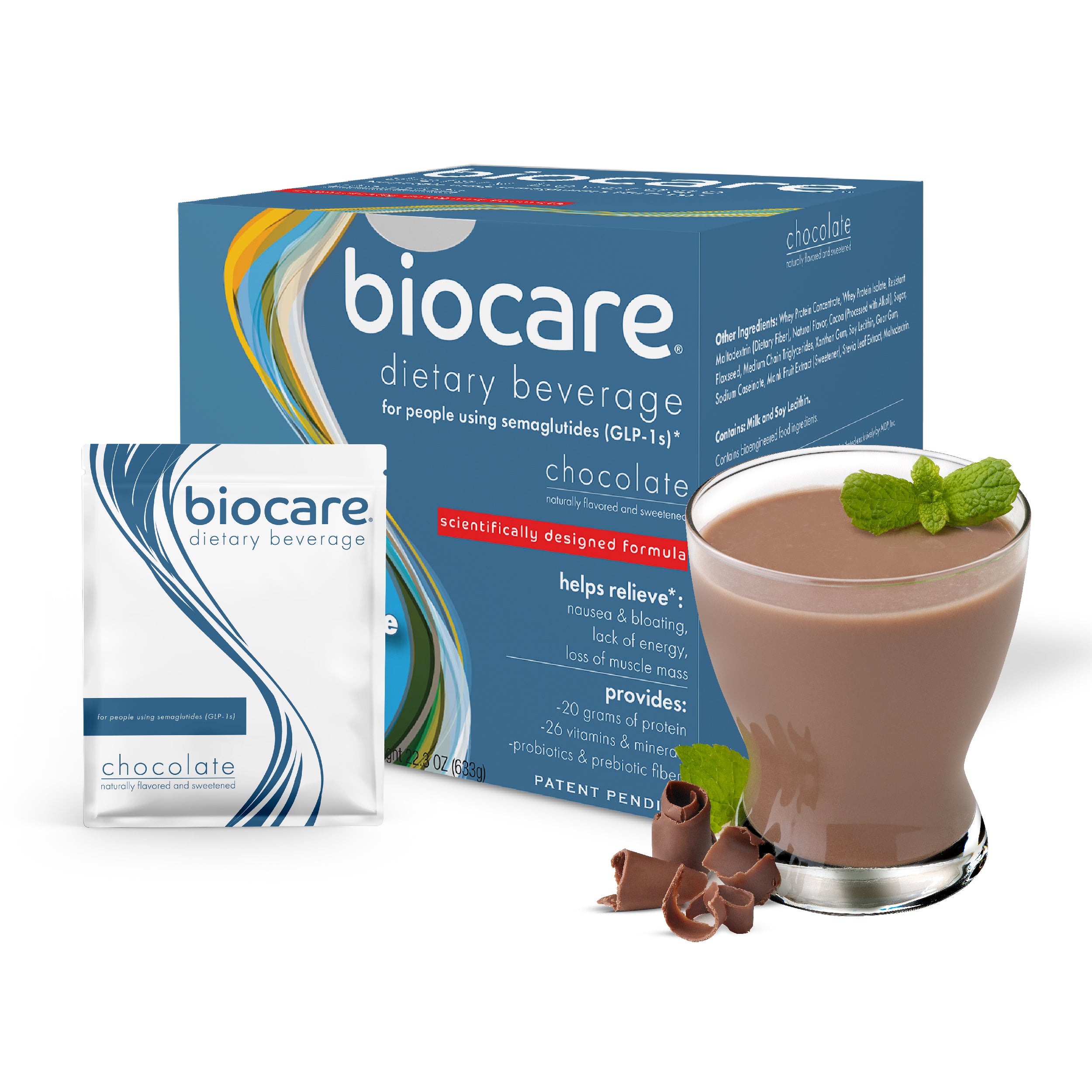
In addition to being an energy source, protein is essential for maintaining muscle, bone, and skin health.
Protein is a macronutrient, a type of nutrient that we need in larger quantities because it is a source of energy. In addition to being an energy source, protein is essential for maintaining muscle, bone, and skin health — in addition to the muscle involved with vital organs. During weight loss, it is not just fat mass that is lost — lean muscle mass is also lost. Lean muscle mass is important for a few reasons: (1) it preserves bone mass, which is important because weaker bones can elevate your risk of fractures or osteoarthritis; (2) it is metabolically active, which means your muscles burn energy, even while at rest; and (3), it can help regulate blood sugar levels.
How Much Protein Should I Have While Taking Weight Loss Medications?
The amount of protein needed varies from person to person and is influenced by factors such as age, gender, weight, and activity level. The Recommended Dietary Allowance (RDA) for protein has been established as 0.5 grams of protein for each pound of body weight. When thinking about the percentage of calories from protein, it is recommended that 25 to 35 percent of your daily caloric intake should come from protein.
Protein and Calories. If you’ve talked with your health care provider and know your daily caloric goal, multiply that number by 25 percent and 35 percent to determine your protein range. For example, if your goal is 1,500 calories per day, 375 to 525 calories would come from protein (1,500 * .25 = 375; 1,500 * .35 = 525).
Protein and Grams. Each gram of protein has four calories. To determine the number of grams of protein, divide your calorie range by four. For example, on a 1,500 calorie diet, you would consume 95 to 130 grams of protein (375 / 4 = 95 grams; 525 / 4 = 130 grams).
There are some tools and guidelines available. For example, The USDA has a free online calculator to help you calculate daily nutritional recommendations. Because protein needs are influenced by a number of individual factors, it is important to talk with your health care provider to determine the optimal amount.
What Kind of Protein is Best?
Protein comes from animal and plant sources, so including both sources in your diet, if you are not vegetarian or vegan or have dietary restrictions, will keep your diet well rounded and interesting. Proteins can also come from powders (e.g., whey). Animal proteins are considered more complete proteins because they include all the essential amino acids (building blocks of life) though plant-based proteins do include some amino acids and do provide several health benefits. Lean meats such as skinless white meat chicken or turkey, pork, lean cuts of beef and fish such as salmon or tuna are good sources of protein.
When consuming proteins, keep in mind that you are also consuming fats, carbohydrates, vitamins, and minerals. Be sure to consume more proteins that are lower in saturated fat. If you increase your daily protein intake, keep in mind that calories from other food sources may need to be reduced to stay within your daily calorie count.
Work with your health care provider to develop an eating plan that meets your daily caloric and nutritional needs. Before beginning any weight loss program, whether it includes anti-obesity medication or not, be sure to consult with your health care provider to make sure your desired weight loss strategy is right for you.
About the Author: Dr. Dawn M. Sweet has over 20 years of experience in the field of communication. Dr. Sweet has given several invited talks to and workshops for academic and private sector audiences on the role of nonverbal and verbal communication in achieving positive outcomes and mitigating bias. Her research has been published in several top ranked peer-review journals, and it has been featured on NPR’s River to River / All Things Considered, Buzzfeed, and Science Daily. Her research has also been used to inform expert testimony.
* Wegovy® and Ozempic® are registered trademarks of Novo Nordisk A/S. Novo Nordisk is a registered trademark of Novo Nordisk A/S.




